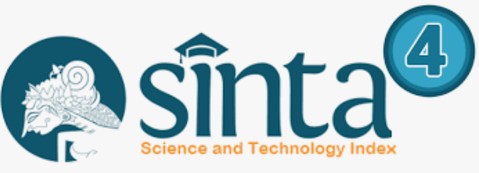Pengaruh Fee Audit, Audit Tenure, dan Rotasi Audit terhadap Audit Report Lag: Implikasi bagi Efisiensi Audit dan Ketepatan Waktu Laporan
DOI:
https://doi.org/10.36085/jamekis.v8i2.7809Abstrak
Penelitian ini mengkaji pengaruh Fee Audit, Audit Tenure, dan Rotasi Audit terhadap Audit Report Lag, dengan fokus pada perusahaan manufaktur di sektor properti dan real estate yang terdaftar di Bursa Efek Indonesia selama periode 2017–2021. Penelitian ini dilatarbelakangi oleh pentingnya pelaporan keuangan yang tepat waktu, yang dapat memengaruhi pengambilan keputusan para pemangku kepentingan. Namun, Audit Report Lag yang berkepanjangan masih menjadi tantangan, dan studi terkait yang membahas kaitannya dengan variabel-variabel audit tersebut masih terbatas, sehingga menciptakan kesenjangan dalam literatur. Penelitian ini menggunakan analisis regresi data panel pada data dari 33 perusahaan selama lima tahun, menghasilkan 165 observasi. Data sekunder diperoleh dari laporan keuangan yang telah diaudit dan pengungkapan perusahaan. Hasil penelitian menunjukkan bahwa Fee audit dan Audit Tenure memiliki pengaruh negatif signifikan terhadap Audit Report Lag, yang mengindikasikan bahwa fee yang lebih tinggi dan tenure yang lebih panjang dapat mempercepat pelaporan. Sebaliknya, Rotasi Audit menunjukkan hubungan positif, yang mengindikasikan bahwa pergantian auditor dapat memperlambat pelaporan. Temuan ini memberikan wawasan berharga bagi regulator, auditor, dan perusahaan untuk meningkatkan efisiensi dan ketepatan waktu audit.
Referensi
Al-Ebel, A., Baatwah, S., & Al-Musali, M. (2020). Religiosity, accounting expertise, and audit report lag: Empirical evidence from the individual level. Cogent Business & Management, 7 (1), 1823587. https://doi.org/10.1080/23311975.2020.1823587
Akerlof, G. A. (1970). The market for “lemons”: Quality uncertainty and the market mechanism. Quarterly Journal of Economics, 84 (3), 488–500. https://doi.org/10.2307/1879431
Byrne, D. (1961). The influence of propinquity and opportunities for interaction on classroom relationships’. 14 (1), 63–69. https://doi.org/https://doi.org/10.1177/001872676101400106
Byrne, D., & Buehler, J. A. (1955). A note on the influence of propinquity upon acquaintanceships. Journal of Abnormal and Social Psychology, 51 (1), 147–148. https://doi.org/10.1037/h0040985
Carcello, J. V. (2004). Audit firm tenure and fraudulent financial reporting. Auditing, 23 (2), 55–69. https://doi.org/10.2308/aud.2004.23.2.55
Doogar, R. (2015). Audit fee residuals: Costs or rents? Review of Accounting Studies, 20 (4), 1247–1286. https://doi.org/10.1007/s11142-015-9322-2
Dwiandari, F. R. (2020). Abnormal audit fee, audit tenure, and audit quality. International Journal of Innovation, Creativity and Change, 13 (4), 780–796. https://www.scopus.com/inward/record.uri?partnerID=HzOxMe3b&scp=85087088530&origin=inward
Dye, R. A., & Sridhar, S. S. (2008). A positive theory of flexibility in accounting standards. Journal of Accounting and Economics, 46 (2–3), 312–333. https://doi.org/10.1016/j.jacceco.2008.09.002
Farid, M. N. F., & Baradja, L. (2022). Pengaruh Fee Audit, Audit Tenure, Audit Rotasi, Ukuran Perusahaan Klien Pada Kualitas Audit. Jurnal Ekonomi Trisakti, 2 (2), 1063–1078. https://doi.org/10.25105/jet.v2i2.14750
Hai, P. T. (2020). Research factors affecting professional skepticism and audit quality: Evidence in Vietnam. International Journal of Innovation, Creativity and Change, 13 (1), 830–847. https://www.scopus.com/inward/record.uri?partnerID=HzOxMe3b&scp=85085200299&origin=inward
Hooks, J. J., & Perera, H. (2006). The evolution of annual reporting practices of an electricity firm. Accounting Forum, 30 (2), 85–104. https://doi.org/10.1016/j.accfor.2005.10.002
Jenkins, J. G., & Haynes., C. M. (2003). The Persuasiveness of Client Preferences: An Investigation of the Impact of Preference Timing and Client Credibility. Auditing: A Journal of Practice & Theory, 22(1).
Jensen, M. C., & Meckling, W. H. (1976). Theory of the firm: Managerial behavior, agency costs and ownership structure. Journal of Financial Economics, 3 (4), 305–360. https://doi.org/10.1016/0304-405X(76)90026-X
Junior, D. D. H., Mattos, L. K. De, & Flach, L. (2020). Audit report lag determinants: a panel data regression model with all companies listed on the Dow Jones Stock Index. International Journal of Business Excellence, 21 (1), 139. https://doi.org/10.1504/IJBEX.2020.106954
Lai, K.-W. (2019). Audit report lag, audit fees, and audit quality following an audit firm merger: Evidence from Hong Kong. Journal of International Accounting, Auditing and Taxation, 36, 100271. https://doi.org/10.1016/j.intaccaudtax.2019.100271
Laura, R., Nur Laela Ermaya, H., & Warman, E. (2021). Apakah Opinion Shopping, Reputasi Kap, Audit Tenure Dan Kondisi Keuangan Mempengaruhi Opini Audit Going Concern? JIAFE (Jurnal Ilmiah Akuntansi Fakultas Ekonomi), 07 (01), 1–10. https://doi.org/10.34204/jiafe.v7i1.2928
Paramitha, M. D., & Setyadi, E. J. (2022). Pengaruh Dewan Komisaris, Komisaris Independen, Komite Audit, dan Kompleksitas Perusahaan Terhadap Fee Audit. Ratio : Reviu Akuntansi Kontemporer Indonesia, 3 (1), 13. https://doi.org/10.30595/ratio.v3i1.12840
Purda, L., & Skillicorn, D. (2015). Accounting Variables, Deception, and a Bag of Words: Assessing the Tools of Fraud Detection. Contemporary Accounting Research, 32 (3), 1193–1223. https://doi.org/10.1111/1911-3846.12089
Read, W. J., & Yezegel, A. (2018). Going-concern opinion decisions on bankrupt clients: Evidence of long-lasting auditor conservatism? Advances in Accounting, 40, 20–26. https://doi.org/10.1016/j.adiac.2017.12.004
Sekaran, U., & Bougie, R. (2016). Research Methods for Business : A Skill-Building Approach (Seventh Ed). John Wiley & Sons, Inc.
Tarca, A., Street, D. L., & Aerts, W. (2011). Factors affecting MD&A disclosures by SEC registrants: Views of practitioners. Journal of International Accounting, Auditing and Taxation, 20 (1), 45–59. https://doi.org/10.1016/j.intaccaudtax.2010.12.001
Vanstraelen, A. (2002). Auditor economic incentives and going-concern opinions in a limited litigious continental European business environment: Empirical evidence from Belgium. In Accounting and Business Research (Vol. 32, Issue 3). https://doi.org/10.1080/00014788.2002.9728966
Wardani, N. K. (2023). Pengaruh Effective Tax Rate (Etr), Profitabilitas Dan Tunneling Incentive Terhadap Transfer Pricing (Studi Empiris Pada Perusahaan Manufaktur Yang Terdaftar di Bursa Efek Indonesia Tahun 2018-2020).







